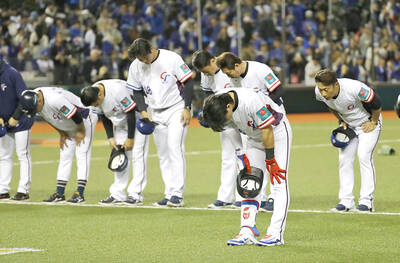The tension is clear between teammates Alberto Contador and Lance Armstrong. That’s nothing, however, compared to the anger many riders feel toward Tour de France organizers.
On a day when Contador and Armstrong held their second and third spots in the overall standings and Britain’s Mark Cavendish won the 10th stage, the Tour took a giant technological leap backward on Tuesday.
Riders were stripped of their customary earpieces, left to fend for themselves and denied contact with their teams during the 194.5km route. The decision to ban rider radios and TV sets in cars was made last month.
The Tour wanted to inject drama into the race by eliminating earpieces for the 10th and 13th stages. Many riders — Armstrong, Contador and overall leader Rinaldo Nocentini among them — were far from pleased with the experiment.
“The fact is for us it’s dangerous not to have them,” Nocentini said. “There are dangers on the road.”
Instead of drama, the Tour got a day of agonizingly slow riding. The only excitement came with Cavendish’s dash a few hundred meters from the finish for his third stage victory in this race.
“The reason to have no radios was to have more attractive racing, and that’s obviously not what happened,” Astana team director Johan Bruyneel said. “I think if that’s what they wanted to accomplish, it’s been a failure. I just think it’s a bad idea to go back 20 years and do something like this, stupidly, in the biggest race of the year.”
Earpieces allow riders to be linked to their directors in team cars. Riders can be informed of developments and told when they need to attack or chase rivals in a breakaway. The radio transmissions are private and fans cannot listen to them.
The strategy was popularized by Armstrong when he won his first Tour in 1999. Some riders and former champions say the tactic makes cycling too clinical.
The next earpiece-free stage comes tomorrow, a tricky course featuring one big climb and possibly many attacks. Armstrong suspects there will be an electronic change before then.
“My impression is that we’ll have the radio on Friday,” he said.
Armstrong is coming out of three-and-a-half years of retirement and chasing an eighth Tour title. Contador is aiming for a second title after winning in 2007. The Spanish mountain specialist was unable to defend his title last year because Astana was barred from the race because of doping scandals.
Armstrong maintains that talk of a feud between him and Contador is hyped by the media.
“In the first week, the media are looking for stories to write,” Armstrong said on Tuesday. “They analyze every little thing. They say, ‘They hate each other.’ It’s not the case. There’s a little bit of friction, of tension. We both want to win the Tour.”
“The biggest tragedy would be that the both of us want it so bad that somebody else gets [the Tour win],” Armstrong said.
Nocentini finished 34th on Tuesday, while Contador was 40th and Armstrong 46th on the route from Limoges to Issoudun.
Nocentini stayed six seconds ahead of Contador.

Team Taiwan are set to face Spain in a win-or-go-home match tonight for the final berth at the 2026 World Baseball Classic (WBC), despite losing to Nicaragua 6-0 in the WBC qualifier at the Taipei Dome on Sunday. The home team’s loss on Sunday means Nicaragua finish first in the qualifier round in Taipei with a perfect 3-0 record and advances to next year’s finals. After crushing South Africa 9-1 earlier on Sunday, Spain took second place in the four-team qualifier with a 2-1 record. With a 1-2 record, Taiwan finished third while South Africa placed at the bottom with

SIBLING RIVALRY: Marc Marquez was locked in a duel with his little brother, falling behind at one point before recovering for his first season-opening victory since 2014 Six-time world champion Marc Marquez yesterday won the MotoGP season-opening Thailand Grand Prix to complete a dominant debut weekend at his new Ducati Lenovo Team, having also romped to Saturday’s sprint. The Spanish great took the 26-lap grand prix by 1.732 seconds for his 63rd MotoGP victory from younger brother Alex Marquez, who is still seeking a first checkered flag, with Francesco Bagnaia third to complete an all-Ducati podium. It completed a perfect weekend for Marc Marquez, who took pole position, the sprint victory and the grand prix win for a maximum 37 points to open the 22-leg 2025 campaign. He led from

Team Taiwan avoided missing the World Baseball Classic (WBC) for the first time by defeating Spain 6-3 in a do-or-die game in Taipei last night. After narrowly escaping a mercy-rule loss to Spain in the WBC Qualifiers opener on Friday last week, the home team — winner of last year's WBSC Premier12 title three months ago — got their revenge against the 2023 European champions at Taipei Dome. "It felt quite different from when we won the Premier12," Taiwan captain Chen Chieh-hsien (陳傑憲) said after the game, recalling the ups and downs the team has experienced over the past few days. Unlike in

LONG TIME COMING: With the addition of Marcus Smart, the Washington Wizards finally held a team to under 100 points, the last team this season to do so The Detroit Pistons on Monday won their seventh straight game in the NBA with in-form Cade Cunningham making 32 points and grabbing nine rebounds in a 106-97 win over the Los Angeles Clippers. The Pistons, who are in the playoff position, moved to 32-26, their best record at this stage of a season for 17 years. It was an all-round effort from Detroit with Tobias Harris adding 20 points and Jalen Duren making 19 rebounds along with his 12 points. It was a tight contest until Detroit pulled away late in the third quarter to tie their longest winning streak since the 2014-2015